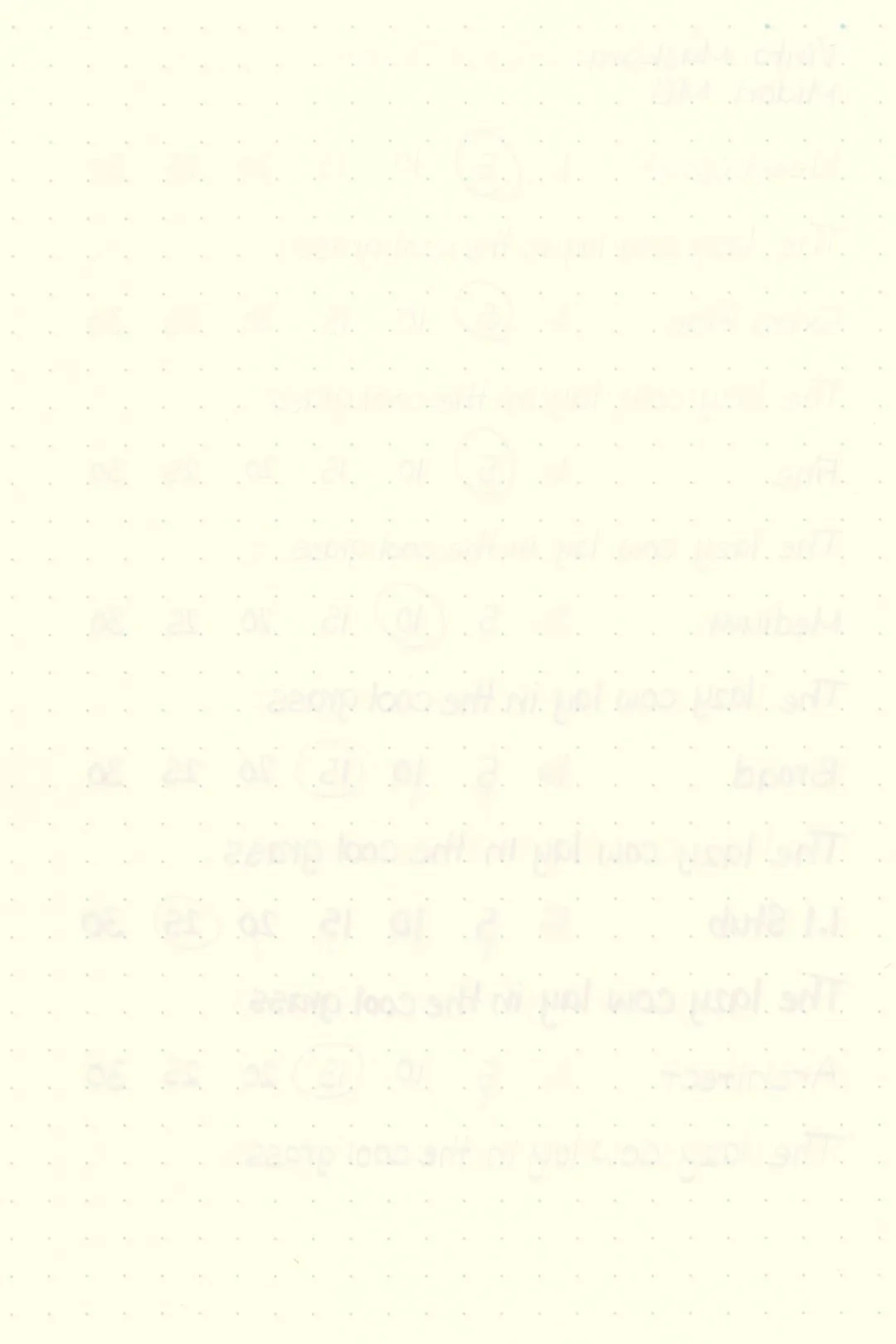Vinta Violet Maskara
Ink Review #52
*Please note that the scan is the accurate representation of this color.
Overview
The color/properties:
Vinta Maskara is a multi-shading ink. It’s a pastel purple with heavy pink and blue undertones. The shading and color variation that I saw with this ink was highly dependent on the paper used. On most of my test papers, Maskara almost looked blue and shaded with a basic cut between its light and dark tones, and soft blue edges around the areas where the ink pooled. On Midori MD paper, however, Maskara showed heavy pink tones and shaded with a softer, more complex gradient, and soft blue edges around the letters.
The color is light, and in most cases I didn’t personally find it too difficult to read. In general, though, found it to be more readable on cream-colored papers. I also think it may be too faint to pronounce over something like graph paper.
Ink Splat
Ink Droplets
Rhodia
Leuchtturm1917
Performance on paper:
Violet Maskara performed well: there was minimal bleed-through on the Kokuyo sheet from the larger nib sizes, and there wasn’t any bleeding or feathering on the other test papers. The dry times were good, often drying within the 20-second mark with the larger nib sizes, but they were noticeably better on the Rhodia sheet, where almost every nib size was dry within 10 seconds! Sadly, there isn’t a lot of water resistance. After exposure to water, the color is easily washed away, and while there are light pink traces of the writing left behind, they’re largely illegible.
Midori MD
Maruman
Tomoe River
Kokuyo
Water resistance
Chromatography
Performance in the pen:
Violet Maskara has a dry-medium flow that was mostly consistent across each of the nib sizes, save for the 1.1 stub which had a noticeably higher flow than the others. Although it was never intolerable, I wouldn’t call this ink especially well-lubricated. There was an observable increase in friction between the nib and paper as the nib sizes went up, especially on Rhodia. If you like your inks to feel wetter or slicker, this ink may not provide a comfortable writing experience. Personally, I was comfortable with the fine and medium nib sizes, but I would still recommend using this ink with a wetter-tuned pen.
Despite the drier flow, I never experienced any hard starts, skips, or stops, and the cleaning process was quick, running clear with a basic flush and leaving no sediment or traces of color behind in the nibs units or the test pen.
Performance in a pen: 9/10
Performance on paper: 9/10
Color saturation: 4/10
Sheening: 0/10
Shading: 10/10
Dry time: 9/10
Water resistance: 0/10
Ease of cleaning: 10/10
Shimmer: None
My personal thoughts...
Vinta Violet Maskara sent me on an adventure. I was at the DC Pen Show, sitting amongst my friends, when I was handed a pen to try. Certainly, it was nothing out of the ordinary — I try pens all the time, it’s a thing. I wrote a few lines, and for the record, it was a fine writing instrument, but more important was what came out of the pen: Vinta Violet Maskara.
My universe came to a screeching halt as I observed the mystery ink. Visibly shook, I weighed my options and (carefully) asked what it was. I had never tried a Vinta ink before, and upon hearing the answer, I was on a beeline to the Lemur Inks table to claim my new prize, along with a few other Vinta inks to try for myself. There was one bottle of Maskara left on the table, and it was mine!
Needless to say, I’m quite fond of Violet Maskara. It’s an awesome ink, and the dry flow simply doesn’t bother me. But what I love more than trying new inks is learning the source of their inspiration. “Maskara” is the Filipino word for “mask,” and Violet Maskara seems to have been inspired by the annual MassKara festival that takes place in Bacolod, Philippines. See, this is my favorite part of writing these reviews: I could have gone my whole life without having known about this! I won’t get into more details here, but I highly recommend checking it out if you’re interested. It has an incredible history, and I’ll include a few links below.
Written in a Profolio Oasis notebook with a Franklin-Christoph Model 31 (14k fine)
Written in a Profolio Oasis notebook with a Sailor 1911S (music nib)
More images/info:
Tools and materials used in the writing samples:
A TWSBI Diamond 580 AL with 7 nib units including a Needlepoint grind, EF, F, M, B, 1.1mm stub, and an Architect grind. All nibs are tuned to perform at the same medium wetness.
A Rhodia No16 A5 DotPad
A Leuchtturm1917 A5 Notebook
A Midori MD A5 Notebook
A 68gsm A5 Tomoe River Notebook
A Maruman Mnemosyne A5 Spiral Notebook
A Kokuyo Campus A5 Notebook
Some links related to the MassKara Festival:
Video footage of the 2023 MassKara Festival dance competition
This is one of the best videos I was able to find of the dance competition, with excellent video and sound quality.
Video footage of the 2023 MassKara Festival electric float parade
Another video from the same source of the electric float parade.
Because you watched the two videos above and now the song is stuck in your head, I’ve done you a solid and placed it right here for you.
Vinta’s page for Violet Maskara
Provides a brief description of their inspiration for the color.













